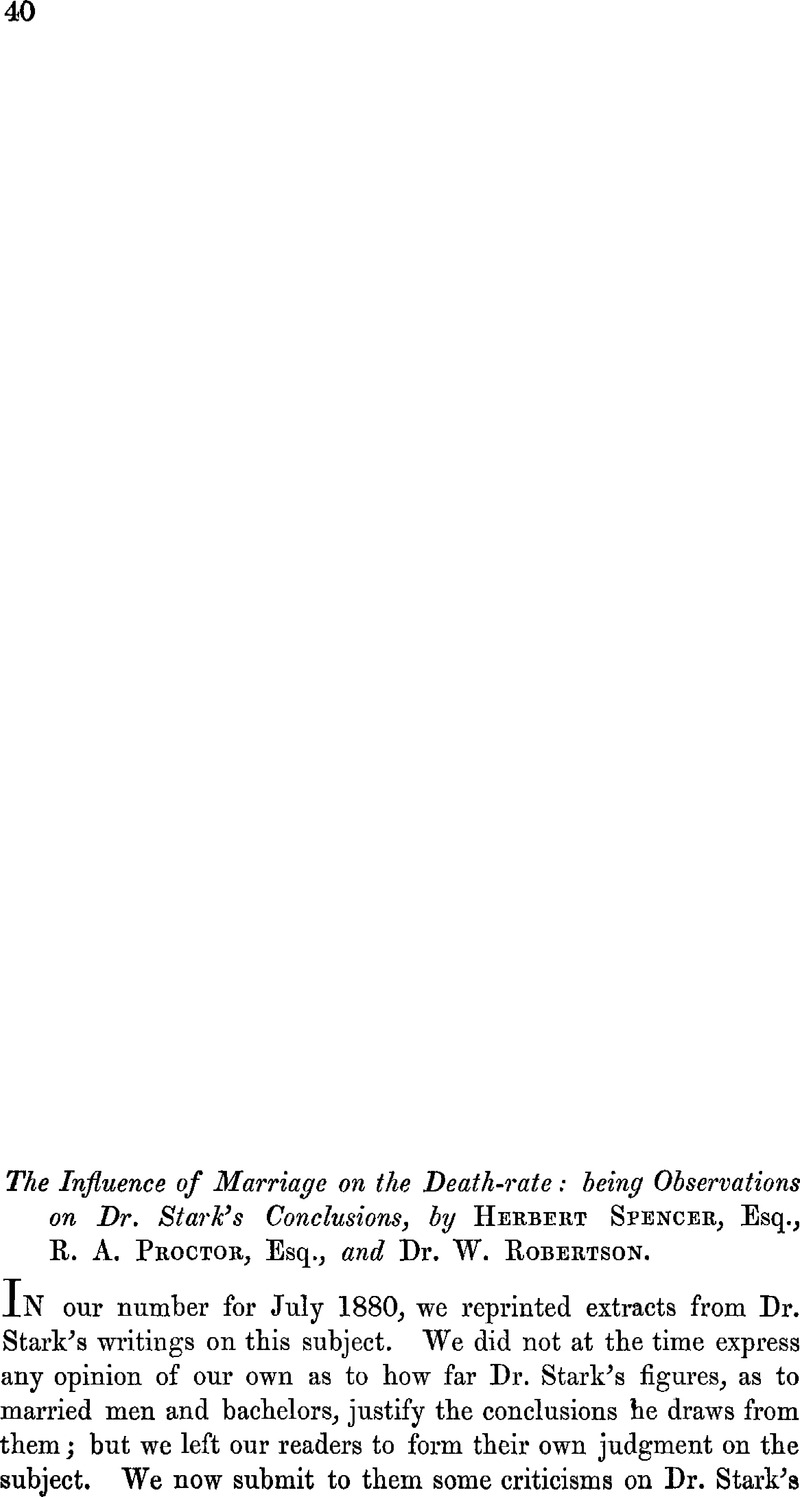No CrossRef data available.
Published online by Cambridge University Press: 18 August 2016

page 42 page * Mr. Spencer has favored us with the following observations on this point:–’The class of widows, taking it as a whole, includes those who having been previously, with their children, supported by a husband earning wages,are left after his death to support themselves and their children; and clearly, the stress brought upon them by this extra exertion, anxiety, and physical privation, is very much greater than that which falls upon any other class. Consequently, they are conditioned in a way which inevitably entails an increase of mortality. Further, it is to be observedthat thi s excess of mortality in the class of widows, consequent upon the condition in which they are left, is increased by the several causes which take away from among them those who are most likely to be long livers. In th e first place, those are most likely tobe remarried who have best preserved their physical vigour and concomitant attractivenessof appearance; and this implies that, had they remained widows, they would have been among those who lived longest. In the second place, those are most likely to be remarried who either have no children, or who are least burdened with children; which again implies that the remarried ones are those whose constitutions are least likely to have been shaken by much child-bearing. And in the third place, there is abstracted from the class of widows by remarriage, those who are possessors of considerable means, and whose property affords a temptation to second husbands—that is to say, those who would be the most able to survive notwithstanding the loss of their husbands: leaving behind those who, being poor, are the least able to struggle with their difficulties. Even supposing, then, that no widows were remarried, their mortality in consequence of their difficulties in maintaining themselves and their children, would be above the average; and this extra mortality is madegreater by the remarriage of those among them who are most likely to be long-lived. Hence,then, the enormous mortality of widows, as shown by the statistics, is amply accounted for, apart from any intrinsic effect which marriage produces.”
page 47 note * It seems to us that the statistics give no more support to this unquestionably true statement, than they do to the very questionable statement asto the destructive tendencies of bachelorhood; in fact, they seem to give precisely the same support to the one as to the other.—ED. J.I.A.